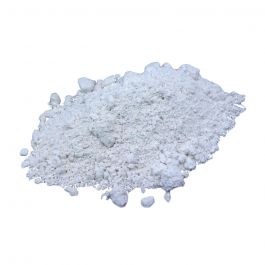- Language
- 🇺🇸
- Joined
- Mar 1, 2024
- Messages
- 339
- Reaction score
- 454
- Points
- 63
L'alluminio non lo renderebbe più sospetto? È ovvio che stai nascondendo qualcosa. Ma non saprei, non ho mai spedito farmaci prima d'ora.
- Language
- 🇬🇧
- Joined
- Jan 19, 2024
- Messages
- 45
- Reaction score
- 30
- Points
- 18
Molte persone dicono che l'alluminio aiuta a bloccare i raggi X, ma io credo che sia un mito.
Il piombo aiuta a bloccare i raggi X grazie alla sua densità di 11400 kg/m³, ma l'alluminio ha solo 2700 kg/m³, quindi credo sia inutile.
è buono solo per avvolgere la droga
Il piombo aiuta a bloccare i raggi X grazie alla sua densità di 11400 kg/m³, ma l'alluminio ha solo 2700 kg/m³, quindi credo sia inutile.
è buono solo per avvolgere la droga
↑View previous replies…
- Language
- 🇺🇸
- Joined
- Jan 23, 2024
- Messages
- 112
- Reaction score
- 39
- Points
- 28
- Deals
- 12
Stronzate! Il foglio di alluminio non blocca i raggi X.
La vostra droga è un ammasso di molecole organiche. le molecole organiche hanno un aspetto diverso dal metallo ai raggi X e sono distinguibili.
Se volete bloccare i raggi X, dovete immergere la vostra roba in un simile inverosimile organico per sembrare qualcosa di innocente. ma a questo punto mi fermo, perché non voglio rivelare i miei metodi furtivi.
La vostra droga è un ammasso di molecole organiche. le molecole organiche hanno un aspetto diverso dal metallo ai raggi X e sono distinguibili.
Se volete bloccare i raggi X, dovete immergere la vostra roba in un simile inverosimile organico per sembrare qualcosa di innocente. ma a questo punto mi fermo, perché non voglio rivelare i miei metodi furtivi.
- Language
- 🇺🇸
- Joined
- May 8, 2024
- Messages
- 43
- Reaction score
- 9
- Points
- 8
Theoretically aluminum can shield against electromagnetic waves, also x-ray.
But the thin layers used mostly are not enough.
There are different ways through which a material can block electromagnetic waves.
Scattering and absorption which often happens in high density, but it also works through the conductivity of a metal, and aluminum and copper for example have a good conductivity, and this allows them to absorb energy from the electromagnetic radiation pretty well, because of their free electrons.
But you would need a thick layer of aluminum, the normal foil is not going to do that well-
But the thin layers used mostly are not enough.
There are different ways through which a material can block electromagnetic waves.
Scattering and absorption which often happens in high density, but it also works through the conductivity of a metal, and aluminum and copper for example have a good conductivity, and this allows them to absorb energy from the electromagnetic radiation pretty well, because of their free electrons.
But you would need a thick layer of aluminum, the normal foil is not going to do that well-
- Language
- 🇺🇸
- Joined
- May 8, 2024
- Messages
- 43
- Reaction score
- 9
- Points
- 8
Also the shielding ability of aluminum is better (lot better) at lower frequencies, and thickness would need to be increased a lot to shield effectively against x-rays. Also at such high frequencies like x-ray denser materials with high Z are normally required because they have a higher probability of interacting with high energy electromagnetic waves, but theoretically every conductor can block them t some point, also aluminum, but you need a very thick layer which is not practical.

